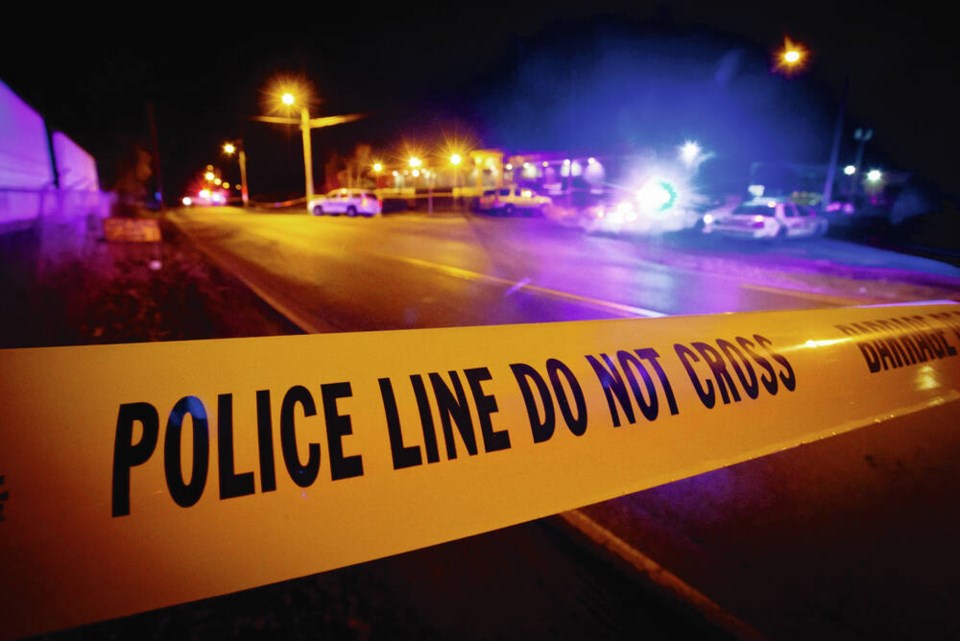The tragic story last week of a Courtenay cyclist who was killed by a hit-and-run driver again raises questions about why these types of tragedies are so commonplace on our roadways. We later found out the driver in that case was charged with first-degree murder but it’s still an opportunity to talk about hit-and-runs in general and why they happen.
There is no one answer about why drivers leave the scene after they have struck another vehicle, badly injured, or even killed, another person. Whatever those reasons might be, I feel that a lack of empathy toward our fellow humans is at the core of the problem.
Though Island roads are increasingly filled with more vehicles every year, there is still a sense of anonymity when we are behind the wheel. We react, often poorly, to the misdeeds of other drivers — reactions that would never occur if the misdeed happened in a face-to-face scenario or if it was caused by someone we know. A neighbour who cuts you off pulling out of their driveway gets a shrug and an “Oops — that’s OK” smile. A truck driver doing the same thing a few kilometers down the road, gets a horn blast and the finger.
There’s more empathy for someone you know, much less for someone you don’t.
Driver’s take off from crashes for many reasons. Often it’s about the mundane — a driver’s licence has expired, insurance has run out or mom and dad didn’t know I borrowed the car. Just as often, though, there are serious factors at play — they’re drunk, the car is stolen (and/or has been used pulling off other crimes), there are warrants for the driver’s arrest or they are prohibited from driving.
Panic can play a factor in fleeing the scene, which is understandable to a certain level. Often when reason sets in, some fleeing drivers do turn themselves in, though I’m suspicious enough to note that many “surrenders” occur well after there has been time to sober up.
Often drivers who commit these crimes try to justify their action by blaming the victims. “He should never have parked there,” “I had no chance to stop — they just stepped out,” or “Who rides a bike in weather like this?” The hit and run is usually the end point of a series of bad decisions which can range from deliberately driving while prohibited, to excessive drinking or to texting while driving.
According to the website Legal Examiner, hit-and-run offenders often do weigh the consequences of their actions in the seconds after the crash and then choose to take off. And this is where the lack of empathy plays in. They would rather take their chances with escape than accept the consequences of the incident they just created and many times those are life-altering consequences. Lack of empathy can tie into a suspect’s immaturity, shock, fear or shame. Whatever the reasons may be, hit and run is an attempt to escape responsibility.
Of course, the rub here is that fleeing always makes it worse. Hit-and-run causing death in Canada carries a life sentence as a maximum and with the advances in forensic detection around this issue escape from justice is very unlikely. Fleeing from any crime scene, involving vehicles or not, is always considered to be an aggravating factor when judgment day finally arrives.
With the increasing amount of technology available to law enforcement coupled with the rise of civilian surveillance video products such as dashcams or security systems covering public thoroughfares, catching offenders is often just a matter of time. There have been cases where a single piece of a broken headlight lens or body moulding led police to the suspect.
There will always be consequences in such incidents, but things always will be less severe compared to running away. Accidents do happen; having empathy and taking responsibility after the fact is always the better choice.
Glove Box: Community safety is at its best when citizens take action and make timely police reports about incidents they witness first hand. But last September, a Nebraska man took that idea too far when he ended up reporting himself as an impaired driver. It started when the man called the Lancaster sheriff’s office to report that he had nearly been run off the road by a car heading the wrong way on the highway. A sheriff’s deputy found the man parked on the highway’s grassy median, facing oncoming traffic, shortly after the 9-1-1 call was made. Turns out all those other cars heading straight for him weren’t so wrong after all. The driver soon admitted that he probably missed an exit and was driving on the wrong side of the highway himself — and confessed to being a “dumb a**”. After he was arrested, blood alcohol testing showed that the man was over twice the legal limit.



